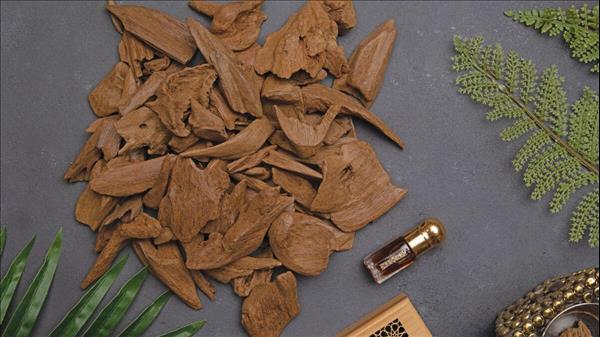
An Ode To The Oud: The Scent Of Arabia
Published: Sat 13 Aug 2022, 11:22 PM
Just living in the UAE is reason enough to fall in love with oud. Over the decades, we've all gifted the oh-so-Arabic scent to our loved ones, especially if they're visiting us here. A few of us rely on it to add a soothing, aromatic touch to our homes; especially when we have guests over. The process of igniting the oud and letting its alluring scent fill up the home is indeed charming. Many of us even burn wood chips to purify clothes. And all of us can't get enough of the whiff of oud as a perfume or oil. Yes, oud has been intrinsic to perfumery and has become synonymous with the Middle East. The Prophet Muhammad (P.B.U.H) referred to oud as an item found in Paradise. Agarwood/oud is mentioned several times in the book called The Hadith Collection of Prophecies and Teachings by The Prophet Muhammad. Known as the 'wood of the gods' by ancient cultures, it is one of the world's rarest commodities. What is the reason behind its popularity and how it has over time become a part of the culture of the land?
What is oud?Agarwood or gharuwood is a fragrant, dark resinous wood used in incense, perfume, and small carvings. It is formed in the heartwood of aquilaria trees when they become infected with a type of mold. Before infection, the heartwood is odourless, light and pale in colour; however, as the infection progresses, the tree produces a dark aromatic resin, called aloes or agar; as well as gaharu, jinko, oud, or oodh aguru — in response to the attack, which results in a dense, dark, resin-embedded heartwood. This resin-embedded wood is valued in East and South Asian cultures for its distinctive fragrance, and thus is used for incense and perfumes. Both agarwood and its resin distillate/extracts are known as oud in Arabic (rod/stick). Western perfumers often use agarwood essential oil under the name oud or oudh. Oud oil can be distilled from agarwood using steam, and interestingly the total yield of oil for 70 kg of wood does not exceed 20 ml. In Saudi Arabia, both oud incense and oil are used for a longer-lasting effect.
It's different than bakhoorOften, as laymen, we interchange the words, oud and bakhoor. Whilst, oud is the chips of the agarwood tree (that undergo minimal processing) with the earthy fragrance of the chips; bakhoor is the chips soaked in various perfume oils like jasmine to soften the scent.
Culture, memories and tradition“In fact, oud-based perfumes were loved and used by our Messenger of Allah (P.B.U.H.). Oud, indeed, has been an essential part of the customs and traditions of this land,” said Abdulla Ajmal, deputy COO, Ajmal Perfumes. With more than 1,000 fragrance products, Ajmal Perfumes has been one of the leading names in the art and craft of perfumery in the Middle East for more than seven decades. Swiss Arabian recently launched the Oud Malaki perfume oil, bearing an intensely crisp and woody scent. With a history spanning over 45 years, the first perfume manufacturer in the UAE, the brand's Gourmand Oud fuses precious golden saffron alongside roses adding depth as oud meets akigalawood, sweetened by hints of praline.“Middle Eastern perfumes have always attracted customers from around the world due to their distinct fragrances. One of the most popular fragrances is oud which also happens to be synonymous with Arab heritage, culture and traditions,” said Adham Kamal, CEO, Swiss Arabian.
The scent that stands apartAdham adds,“One of the main reasons for oud's popularity is its strong, smoky and captivating scent. The scent of oud has a unique appeal and its intensity and decadence make it amongst the most memorable types of fragrances.” The connoisseurs may like to surrender to the Forever Oud range, created by Forever Rose, of fragrances that are infused with carefully selected essential oils, luxurious notes of the finest scents, and a slight hint of carefully selected ouds from across the world. Ajmal's traditional expertise in Arabic perfumery – especially Dahn Al Oudhs and Mukhallats – ensures long-lasting purity and sublime craftsmanship.“The usage of burning agarwood as bakhoor or using Dahn Al Oudhs has always suggested tradition and good taste to all Khaleejis across this region. Oud has put this region on the global map, with even global perfume brands using oud in their modern creations,” added Abdulla. Dahn Al Oudhs are the pure oils distilled from the wood of the Agarwood tree.

Legal Disclaimer:
MENAFN provides the
information “as is” without warranty of any kind. We do not accept
any responsibility or liability for the accuracy, content, images,
videos, licenses, completeness, legality, or reliability of the information
contained in this article. If you have any complaints or copyright
issues related to this article, kindly contact the provider above.

















Comments
No comment